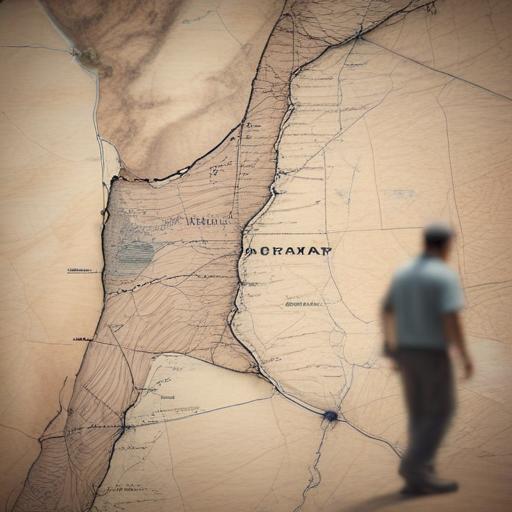As missile attacks from Iran intensify their focus on Israel, neighboring Jordan is feeling the ripple effects of this escalating conflict. Recently, air raid sirens have frequently echoed across Jordanian cities, often aligning with sirens in Israel, raising concerns among locals who lack adequate bomb shelters for protection.
The Jordanian General Intelligence Directorate has urged citizens to stay indoors and avoid any open areas during these alerts, emphasizing safety measures. Their recent statement reassured the public by stating, “The warning period has ended, we hope everyone is safe. Please follow the instructions.”
Jordanian residents have increasingly found themselves in precarious situations, often remaining indoors during missile alerts. A drone crash in the Abu Nseir neighborhood of Amman damaged vehicles and a bus stop, fortunately without causing injuries. Further incidents, including a drone crash near Azraq that injured two individuals—a young girl among them—have raised alarms. Security forces have also reported the fall of unidentified objects in various locations, including a suspicious item landing on a school roof, though no injuries were recorded there.
The public sentiment in Jordan reflects a complex relationship with the ongoing conflict. According to a senior source, opinions in the Arab world are sharply divided regarding Iran’s military actions against Israel. Some see Iran’s strikes as a moral victory, while others, particularly those critical of Tehran, perceive it as a greater threat than Israel itself. Furthermore, there is a cohort of neutrals who feel caught in a struggle between influential regional powers, lamenting that the common Arab citizen is left to bear the brunt of the conflict.
In light of the recent events, many citizens are choosing to witness the aerial attacks rather than seek refuge, indicative of a shifting mood between hope and despair. Interestingly, there has been little public outcry against Israel’s military actions, which can be attributed to a significant prevailing sentiment in Jordan that views Iran as a more pressing threat. According to Prof. Ronen Yitzhak from Tel Aviv University, this negative perception has fostered public support for the Jordanian government’s stance, which includes involvement in regional defense measures announced to ensure Jordan does not become a battlefield.
Despite the tensions, this situation presents an opportunity for heightened regional cooperation and solidarity in facing common threats. The resilience displayed by the Jordanian population signals a desire for stability and an ultimate resolution to ongoing regional conflicts.
